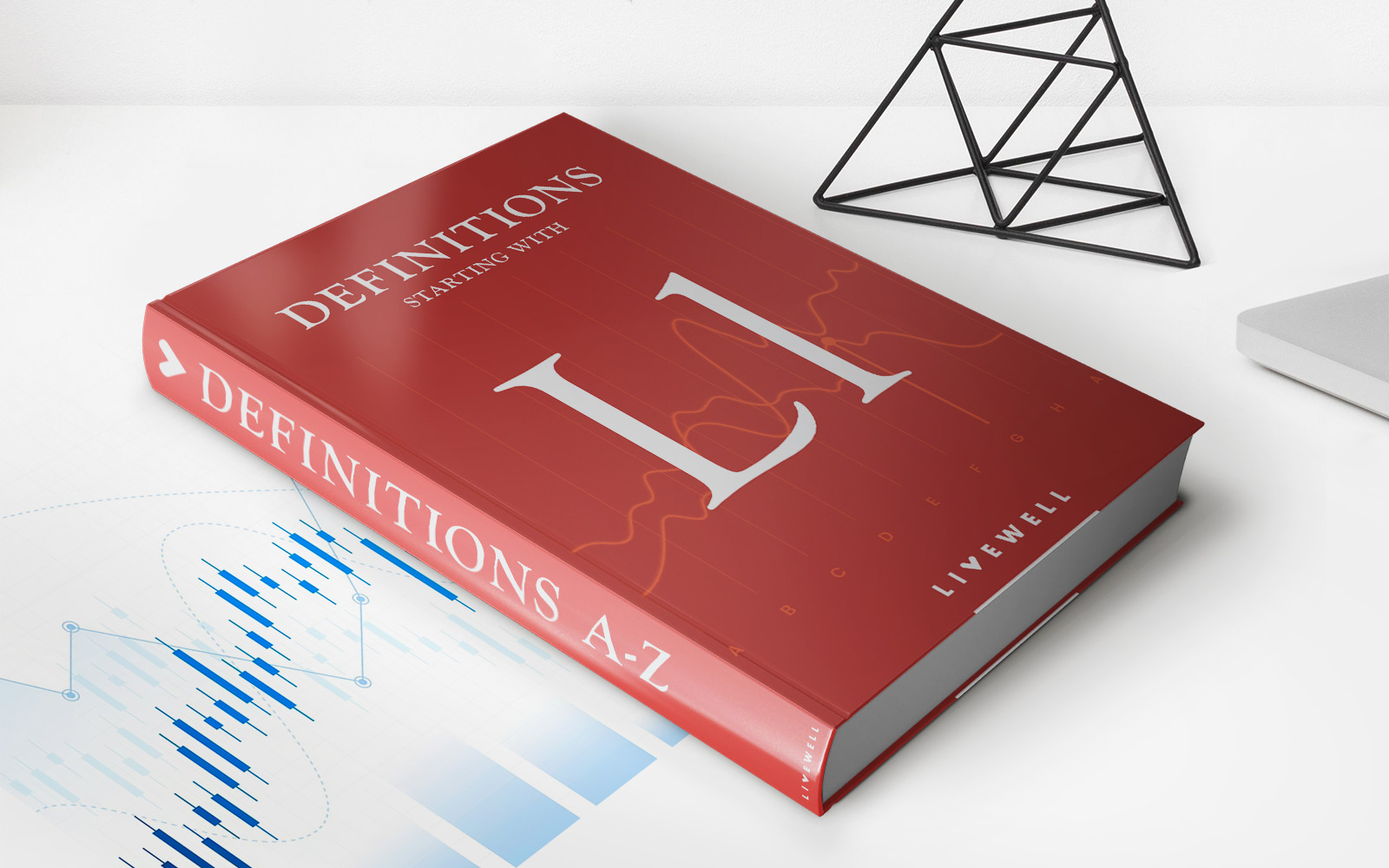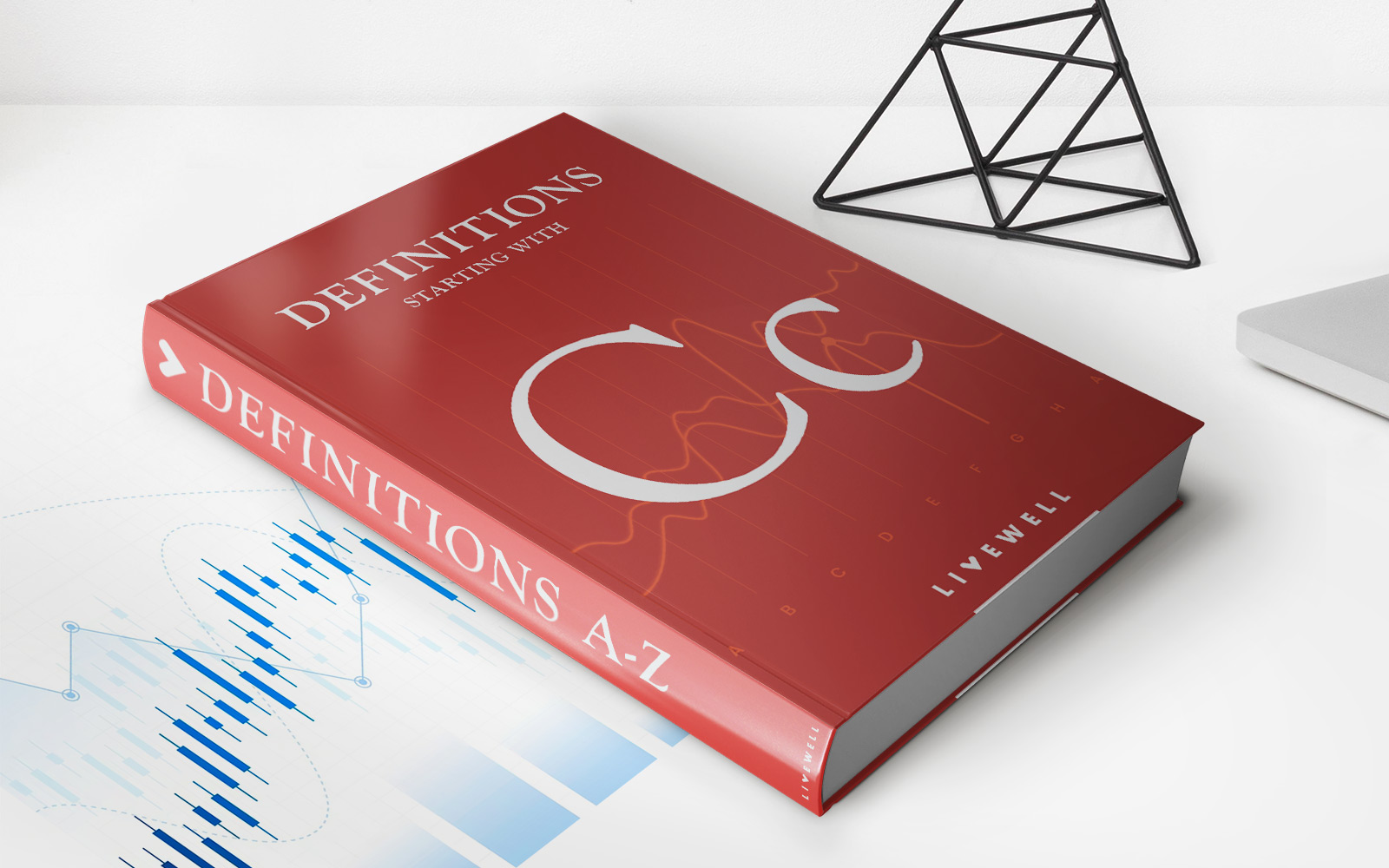Home>Finance>What Does “Level” Refer To In Level Term Insurance?


Finance
What Does “Level” Refer To In Level Term Insurance?
Published: November 12, 2023
Discover what the term "level" means in relation to level term insurance and how it can benefit your financial security.
(Many of the links in this article redirect to a specific reviewed product. Your purchase of these products through affiliate links helps to generate commission for LiveWell, at no extra cost. Learn more)
Table of Contents
Introduction
Welcome to our comprehensive guide on level term insurance. In today’s unpredictable world, having a reliable financial safety net is crucial, particularly when it comes to protecting our loved ones in the event of an untimely death. This is where level term insurance comes into play. It offers individuals a straightforward and affordable way to ensure that their families are financially secure, even after they’re gone.
Level term insurance is a type of life insurance that provides coverage for a specific period, typically ranging from 10 to 30 years, with a fixed death benefit amount. Unlike other types of life insurance policies that may have variable or increasing premiums, level term insurance offers a consistent premium payment throughout the entire policy term. This means that your monthly or annual premium remains the same, providing a stable and predictable cost throughout the coverage period.
Level term insurance is a popular choice due to its simplicity and affordability. It offers individuals peace of mind, knowing that their family’s financial needs will be taken care of when they are no longer able to provide for them. Whether it’s paying off the mortgage, covering everyday expenses, or funding a child’s education, the death benefit from a level term insurance policy can be a valuable lifeline during a difficult time.
In this guide, we will delve deeper into what the term “level” refers to in level term insurance. We’ll explore its advantages, factors to consider when choosing a policy, and help you determine if level term insurance is the right choice for you and your family’s needs. So, let’s get started and gain a better understanding of this important financial protection tool.
Understanding Level Term Insurance
Level term insurance, as mentioned earlier, is a type of life insurance that provides coverage for a specific period with a fixed death benefit amount. But what sets it apart from other forms of life insurance? Let’s take a closer look.
Level term insurance works on a simple premise: you pay a fixed premium amount for a specific term, and if you pass away during that term, the policy pays out a predetermined death benefit to your beneficiaries. It’s important to note that level term insurance does not accrue cash value like some other policies. Instead, it provides pure protection for your loved ones in the event of your untimely demise.
One of the key benefits of level term insurance is its affordability. Since the premium amount remains the same throughout the entire term, it allows individuals to budget and plan their finances accordingly. This stability is especially beneficial for young families or individuals who may have other financial obligations, such as paying off a mortgage or financing a child’s education. With level term insurance, you have the peace of mind that comes with knowing your premium will not increase unexpectedly.
Another advantage of level term insurance is its flexibility. Policyholders have the option to choose the term length that best suits their needs, typically ranging from 10 to 30 years. This allows individuals to align the coverage period with their financial goals and the time it takes to reach certain milestones, such as paying off debts or until their children have become financially independent.
Level term insurance also provides the option to convert the policy into a permanent life insurance policy, such as whole life insurance, within a specified timeframe. This can be beneficial if your circumstances change, and you require lifelong coverage or the potential for cash value accumulation.
It’s important to note that level term insurance is pure protection, meaning it does not offer any investment components or cash accumulation. The focus is solely on providing a death benefit to your beneficiaries. If you’re seeking a policy that combines life insurance protection with an investment opportunity, other types of policies, such as universal life insurance, may be more suitable for your needs.
Now that we have a better understanding of level term insurance, let’s explore what the term “level” refers to and why it is an essential aspect of this type of coverage.
What is the “Level” in Level Term Insurance?
The term “level” in level term insurance refers to the consistent and fixed premium payments and death benefit amount that remain unchanged throughout the entire term of the policy. Unlike some other forms of life insurance that may have fluctuating premiums or increasing death benefits, level term insurance offers stability and predictability.
When you purchase a level term insurance policy, you agree to pay a specific premium amount for a predetermined period, such as 20 years. This premium remains constant, meaning it does not increase or decrease over the course of the policy term. This allows you to budget and plan your finances accordingly, knowing that your premium obligation will remain consistent.
Similarly, the death benefit amount, which is the amount that will be paid out to your beneficiaries upon your death, is also fixed throughout the term of the policy. For example, if you have a $500,000 level term insurance policy, your beneficiaries will receive $500,000 as the death benefit regardless of when during the policy term your death occurs.
The level premium and death benefit structure of level term insurance make it an attractive choice for many individuals and families. Here are a few key reasons why:
- Budgeting and Planning: With level term insurance, you know exactly what your premium payment will be each month or year, making it easier to budget for and plan your finances.
- No Surprises: Unlike some other types of life insurance that may have increasing premiums, level term insurance offers the peace of mind that your premium will not unexpectedly rise during the term.
- Affordability: Level term insurance tends to be more affordable compared to other types of life insurance, making it accessible to a wide range of individuals.
It’s important to note that once the term of the level term insurance policy ends, the coverage typically terminates, and there is no cash value or surrender value. If you wish to continue coverage beyond the term, you may have options to convert the policy to a permanent life insurance policy or purchase a new term policy, although the premium for a new policy may be significantly higher due to changes in health or age.
Now that we understand the significance of the term “level” in level term insurance and its benefits, let’s explore some of the advantages of choosing this type of coverage.
Advantages of Level Term Insurance
Level term insurance offers numerous advantages that make it a popular choice among individuals seeking affordable and reliable life insurance coverage. Let’s take a closer look at some of the key advantages:
- Fixed Premiums: One of the primary advantages of level term insurance is the fixed premium payments. The premium amount remains the same throughout the entire term of the policy, providing stability and predictability. This allows individuals to budget and plan their finances accordingly without worrying about unexpected premium increases.
- Simple and Affordable: Level term insurance is often considered to be one of the most straightforward and affordable forms of life insurance. Unlike policies with cash value components or investment elements, level term insurance focuses solely on providing a death benefit to beneficiaries. This simplicity helps keep the premiums lower, making it accessible to a wider range of individuals.
- Pure Protection: Level term insurance offers pure protection without any cash accumulation or investment components. The focus is solely on providing a death benefit to your beneficiaries in the event of your passing. This makes it an ideal choice for individuals who prioritize the financial security of their loved ones over potential cash value growth.
- Suitable for Specific Timeframes: Level term insurance allows individuals to choose the specific term length that aligns with their financial goals and needs. Whether it’s protecting a mortgage, funding a child’s education, or covering other liabilities, you can select a term that provides coverage during the most crucial years. This flexibility ensures that you are adequately protected for the specific timeframe that matters most to you.
- Convertible Options: Many level term insurance policies offer the option to convert the policy into a permanent life insurance policy within a specified timeframe. This can be advantageous if your circumstances change, and you require lifelong coverage or the potential for cash value accumulation. The conversion option provides additional flexibility for long-term planning.
It’s important to note that level term insurance may not be suitable for everyone. It is primarily designed to provide coverage for a specific term, and once that term expires, the policy terminates. If you anticipate needing coverage beyond the selected term, you may have the option to convert the policy or explore other types of life insurance, such as permanent life insurance. Additionally, individuals with significant health issues may face higher premiums or potential difficulties in obtaining level term insurance coverage.
Now that we’ve explored the advantages of level term insurance, let’s move on to the factors you should consider when choosing a level term insurance policy.
Factors to Consider when Choosing a Level Term Insurance Policy
Choosing the right level term insurance policy requires careful consideration of various factors to ensure that it aligns with your needs and provides adequate coverage for your loved ones. Here are some crucial factors to keep in mind:
- Coverage Amount: Determine the amount of coverage you need by considering your financial obligations, such as mortgage, debt, education funding, and ongoing living expenses. Assessing your family’s needs will help you select an appropriate death benefit amount.
- Policy Term Length: Evaluate how long you require coverage. Consider factors such as the time it will take to pay off major debts and the years until your dependents become financially independent. Choose a term length that aligns with these milestones.
- Premium Affordability: Assess your budget and determine the maximum premium payment you can comfortably afford throughout the policy term. It’s essential to strike a balance between adequate coverage and a premium amount that fits within your financial means.
- Conversion Options: If you anticipate needing coverage beyond the selected term or desire the potential for cash value accumulation, investigate the conversion options available with the level term insurance policies you are considering. Understand the timeframe limitations and the conversion policy terms.
- Insurer’s Financial Stability: Research the financial stability and reputation of the insurance company you are considering. Look for insurers with strong ratings, indicating their ability to fulfill policyholder claims even in the long term.
- Additional Riders: Explore the availability of optional riders that can enhance the coverage offered by the level term insurance policy. Common riders include accelerated death benefit, waiver of premium, and child protection riders. Assess these riders based on your specific needs.
It’s also important to review the policy terms and conditions carefully. Understand any limitations, exclusions, or restrictions that may impact the coverage provided. Consider seeking professional advice from a qualified insurance agent or financial advisor who can assist you in selecting the most suitable level term insurance policy for your unique circumstances.
Lastly, periodically review your level term insurance policy to ensure that it continues to meet your evolving needs. Life events such as marriage, having children, or significant financial changes may necessitate adjustments to your coverage amount or term length.
By carefully considering these factors and conducting thorough research, you can make an informed decision and select a level term insurance policy that provides the protection and peace of mind you and your family deserve.
Now, let’s move on to the next section and determine if level term insurance is the right choice for you.
Is Level Term Insurance the Right Choice for You?
Deciding if level term insurance is the right choice for you depends on your personal circumstances, financial goals, and priorities. Here are some considerations to help you determine if level term insurance aligns with your needs:
Financial Protection: If you have dependents or financial obligations that would burden your loved ones in the event of your untimely death, level term insurance can provide essential financial protection. It ensures that your beneficiaries receive a lump sum payment to cover expenses such as mortgage payments, outstanding debts, and everyday living expenses.
Budget-Friendly Options: Level term insurance is known for its affordability and stability in premium payments. If you’re looking for a policy with fixed and predictable premium amounts, level term insurance can be an excellent choice. It allows you to plan your budget and easily manage your premium payments throughout the term of the policy.
Specific Coverage Term: Level term insurance is ideal for individuals who have specific coverage needs for a set period. If you have financial obligations that will be paid off within a specific timeframe, such as a mortgage or educational expenses, level term insurance can offer adequate coverage during those years.
Flexibility: Many level term insurance policies offer convertible options, allowing you to convert your policy to a permanent life insurance policy within a specified timeframe. This flexibility can be advantageous if your needs change or if you want to secure coverage beyond the initial term.
Pure Protection vs. Investment: If your primary goal is to provide pure protection for your loved ones without the desire for cash accumulation or investment growth, level term insurance is a suitable option. It focuses solely on providing a death benefit to your beneficiaries, ensuring financial security in the event of your passing.
However, it’s important to note that level term insurance may not be the best choice for everyone. If you have significant health issues or anticipate needing coverage beyond the selected term, alternative options such as permanent life insurance may be more suitable for your needs.
Ultimately, the decision to choose level term insurance depends on your unique circumstances and financial goals. By assessing your needs, evaluating the advantages and limitations of level term insurance, and considering professional advice, you can determine if it is the right choice for you and your loved ones.
Now, let’s wrap up our guide on level term insurance.
Conclusion
Level term insurance is a valuable financial tool that offers individuals and families peace of mind and financial security. Its key feature of providing a fixed premium payment and a consistent death benefit amount throughout the policy term makes it an attractive option for many.
Throughout this guide, we’ve explored the fundamentals of level term insurance, understanding its “level” aspect, and the advantages it offers. We’ve discussed the importance of considering factors such as coverage amount, policy term length, premium affordability, conversion options, insurer’s financial stability, and additional riders when choosing a level term insurance policy.
While level term insurance is not the right choice for everyone, it can be a suitable option for individuals who prioritize affordable and straightforward coverage for a specific timeframe. It provides a pure protection benefit, ensuring that beneficiaries are financially secure in the event of the policyholder’s untimely demise.
Remember, choosing the right level term insurance policy necessitates careful consideration of your unique circumstances, financial goals, and the needs of your loved ones. Seeking professional advice from insurance agents or financial advisors can help you navigate through the various options and make an informed decision.
In conclusion, level term insurance offers a simple, affordable, and reliable way to protect your loved ones and ensure their financial security. By understanding your needs, conducting thorough research, and exploring the available options, you can select a level term insurance policy that provides the coverage you require.
With level term insurance in place, you can gain peace of mind knowing that your family will be financially protected when they need it the most. So, take the necessary steps to secure your loved ones’ future and provide them with the financial stability they deserve.
Thank you for reading our comprehensive guide on level term insurance. Make an informed decision and protect what matters most to you!














